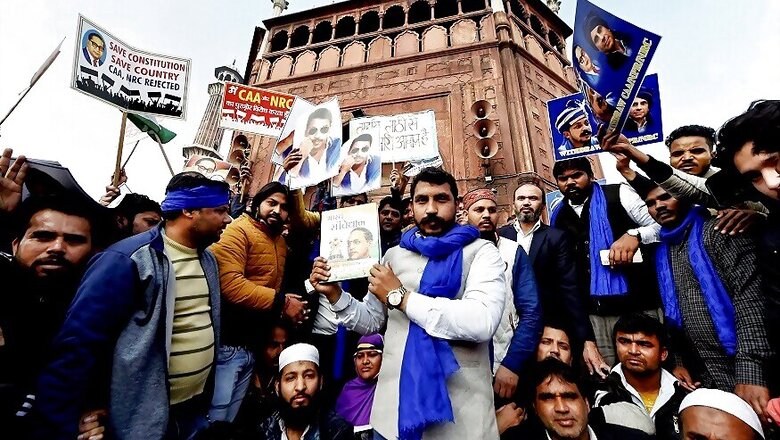
views
New Delhi: It's been over a month since Bhim Army chief Chandra Shekhar Aazad has visited home. "The only time I go home is when I get out of jails," he says. That's when he meets his mother because she wants to show what he calls "zyada pyaar" (more love).
But the 37-year-old lawyer-turned-activist is not thinking of home right now. He has bigger plans. The Dalit leader has decided to turn Bhim Army, an organisation formed with the aim of educating Dalit youth and fighting caste atrocities, into a political party that will contest the assembly elections in Uttar Pradesh in 2022.
The formal announcement, he says, will be made in March and the party will exist parallel to the organisation in its current form.
"I had wanted to announce the formation of a political party back in December, but then this unconstitutional law came into place," Aazad says, referring to the Citizenship Amendment Act (CAA). "To fight against the CAA was more important than fighting elections," he adds.
In the last few months, the Bhim Army chief has hit front-page headlines for his protests, speeches, 'Jai Bhim' slogans, and arrests. The photograph of Aazad surrounded by a mass of protestors at Jama Masjid as he held up a copy of the Constitution somewhat captured the imagination of the nation in these times. Not long after, Aazad, in his blue scarf, shades and twirled moustache, became the literal 'poster-boy' at protest sites in Delhi.
Barely a week after he was released on bail from Tihar Jail, Aazad was detained in Hyderabad on January 26, where he was due to address students on the CAA issue. On January 29, he was to speak at a college in Bengaluru when it withdrew permission and abruptly called off the event.
A week ago, Aazad demanded a ban on the RSS, the ideological parent of the ruling BJP, and dared its chief Mohan Bhagwat to contest elections, speaking at a public meeting right next to the RSS administrative headquarters in Nagpur’s Reshhimbagh area.
Politics, Aazad says, is not his 'ambition' but his 'compulsion'. "Now they can arrest me, beat me in jail and abuse all kinds of human rights. I only want to enter politics so that these things can change and people have their rights," he says. "Everything else remains unchanged, my work will continue to be the same. I will continue to fight for my people," he assures.
A few weeks ago, right after Aazad was released from Tihar Jail, he first went to visit the students of Jamia Millia University and then came to Shaheen Bagh, where he was greeted with "Jai Bhim" slogans by the Muslim women who have occupied the streets for over three months now in protest against the CAA.
As the Dalit leader's promise of 5,000 Shaheen Baghs across the country led to thunderous applause, a Delhi University student told News18, "He is an inspiration. His presence tells us that the fears are not misplaced. In fact, he stands by us in our demand for the recall of such an Act." The murmurs in Shaheen Bagh were on the same lines — "He is Hindu, but he is fighting for Muslim rights."
Hero, But Whose Leader?
"I am no one's hero, I am just doing what my duty is. Whoever is in need of help, Bhim Army will help them. This is what Kanshi Ram has taught us," he says. "Dalits. Adivasis. women. They haven't received their basic rights."
In 2015, Vinay Ratna Singh and Aazad founded the Bhim Army, which initially aimed to provide free education to Dalit students. However, it soon expanded to become a quasi-administrative support service for Dalits in and around Saharanpur. Two years later, in 2017, Aazad shot to fame in the mainstream media after a case landed him in prison for 15 months.
That year, Saharanpur witnessed months of tension after the police urged the Dalit community who wanted to install an Ambedkar statue in Shabbirpur not to do so in the 'interest of peace'.
Thereafter, on May 5, 2017, when the Dalit community objected about "too loud DJ" as the Thakur community took out a procession commemorating Maharana Pratap, it led to violence as a mob armed with swords, thick bamboo sticks, country-made revolvers and bottles filled with petrol ransacked the Dalit ghetto of the village, burning down 55 homes. Several Dalits were grievously injured. One member of the Thakur community died. Five Dalits were booked for murder.
A few days after the violence, the Bhim Army — relatively unknown then —called for a Mahapanchayat in Saharanpur town to protest against the violence in Shabbirpur. The police denied them permission and the protest turned violent as vehicles were set ablaze, stones were pelted and a police post was damaged.
Cases were registered against almost every known member of the Bhim Army, and they rose to national prominence while in hiding. A day after Azad had been granted bail by the Allahabad high court on the charges that the police had filed, he was booked under the NSA. He was released only after a plea from his mother.
This is when Aazad turned into a young, Dalit icon. A signboard stood outside his village that had his face printed on it and read, "The Great Chamar".
"India is a beautiful country that's supposed to treat all religions equally. We don't want this idea of India to change, our idea is to help the helpless," he says.
Aazad does not explain what his yet-to-be-named political party's plans are specifically for the rights of religious minorities, but he firmly believes that the CAA is "not anti-Muslim, but anti-India". He says he wants to work for the rights of 'every single human' in the country.
"The problem with this andolan is that the BJP government made everyone believe it is anti-Muslim. Yes, they are working on their Hindutva agenda but what they are doing is anti-India. If they succeed in making it a Hindu Rashtra, then the laws will also be theirs. It will be on the basis of religion. It will be inspired by Manusmriti. Those laws will not be good for anyone living in this country," he says, explaining his views on the controversial law that has led to protests across the country.
"We have now proven that the BJP has changed the narrative to make it seem like the law is just anti-Muslim, it is actually anti-nation. This law will break the entire nation and bring everyone to the streets. This law will bring the country bad reputation globally, and it's already happening," he tells News18 while checking on his Twitter feed on his phone.
Mayawati, RSS and Kejriwal
Earlier last year, Aazad had launched an attack against Bahujan Samaj Party (BSP) general secretary Satish Chandra Mishra, accusing him of misguiding party chief Mayawati and weakening the Bahujan movement. This came after former CM Mayawati had slammed the Bhim Army chief, in a series of tweets, alleging that the BJP was behind his organisation as they wanted to “divide Dalit votes” ahead of polls.
In the recent Delhi election results, the BSP, once considered a rising force and an alternative to the BJP and the Congress in Delhi, was reduced to 0.71 per cent vote-share despite contesting 68 assembly seats. The Mayawati-led party secured fewer votes than NOTA in as many as 32 assembly seats or nearly half the constituencies the BSP fielded its candidates in. Asked if he thinks the BSP has become irrelevant under Mayawati's leadership, Aazad says, "I can't comment about the BSP, how they will improve their party is something that they need to figure out."
Azad's choice in Delhi was any party, but the BJP. "We had appealed to our people in Delhi to vote against the BJP. I am happy that they chose Kejriwal. I am worried about the students of Jamia, JNU and DU —the right to protest has been snatched away from them, I didn't want that to continue. That's the only reason I appealed to the people to vote for AAP."
Immediately after, Aazad reveals his cautiousness. "Only time will tell how much he (Kejriwal) works for the Bahujan community. If he commits an injustice against the Bahujan community, you will find me standing on the road against him as well."
But, what about alliances? "Chandra Shekhar Aazad follows the bahujan ideology," he says, suddenly switching to the third person.
"This ideology is not against anyone, it talks about humanity. Whoever is willing to accept that ideology, we will stand by them. We will not stand by people who are using Dalits as their vote bank," he says. "The BJP wouldn't have been able to enter Parliament if people like us entered politics earlier," he adds.
Asked about his thoughts on RSS chief Mohan Bhagwat's recent comment that the Sangh does not want any other power centre other than the Constitution, Aazad does not mince words. "The RSS is a liar," he says. "They instigate the country against Dalits, Muslims and Adivasis. They don't even accept the Indian Constitution, how will they respect it? They don't even hoist the Indian flag at their centres. They have started talking about Babasaheb in the last two years, but who's going to forget that in 1949 they took out a march against Ambedkar?”
“They are not good for any community. They want to take back Dalits to a time when there was rampant discrimination and they would not have access to education or jobs. That's RSS' idea of India,” he adds.
On Bhim Army's Wishlist
For a while now, the Bhim Army leader has been visiting protest sites across the country, explaining to the protestors why the CAA is 'anti-nation'. But it's difficult to not notice the absence of women among the pack of Aazad's followers, who all have a blue scarf, wrapped around their neck as their trademark sign. However, Aazad, who goes by the alias 'Ravan' seems keen to shed the image that the Bhim Army is a 'hyper-masculine' outfit.
"Babasaheb had always spoken about equal rights for women. I am a follower of Babasaheb, and I will put in place his principles in my work and in my politics," the Bhim Army chief says.
One of the ideas that he says his political party will work on is to make the country "a place where a woman can walk in the streets in the middle of the night". "Once more and more women come out on the streets, and they protest, then only more women will join," Aazad says.
Yet another plan of the Bhim Army is to bring the Bahujan community together through social awareness programmes. "We have already started such programmes. They need to come together and build a stronger relationship. The idea of brotherhood is missing, and that's what we are trying to build."
The same brotherhood that Aazad speaks about was questioned recently, a week after this interview was conducted, when violence broke out near Jaffrabad in northeast Delhi after protestors gathered there following a 'nationwide strike call' from Aazad. This was a part of the demonstrations that Aazad had planned following the Supreme Court order which said "quotas and reservations for promotions for government jobs is not a fundamental right".
"I appeal to (members of) the Bahujan Samaj that it is our fundamental right to raise voice against injustice, observe shutdown in a peaceful manner. People of the BJP will try to provoke you, do not get provoked," Aazad had tweeted on Sunday morning.
Hours after the tweet and following BJP leader Kapil Mishra's rally in northeast Delhi where he delivered an incendiary speech, clashes broke out. That was the beginning of the Delhi riots that have led to 42 deaths so far. Soon after, the obvious questions were: "Where is Bhim Army? Where is Aazad?"
Aazad, meanwhile, was in Maharashtra's Aurangabad, holding a protest march there. "Aazad's call was for a nationwide protest, so members of Bhim Army were present in Delhi," the outfit’s spokesperson Kush Ambedkarwadi told News18.
According to recent reports, Delhi Police’s initial assessment suggests the riot was allegedly triggered by stone-pelting by a Bhim Army member, and his group being chased away by pro-CAA protesters who gathered at Maujpur in in response to Mishra’s speech. Aazad has refuted reports that any Bhim Army member was involved in the violence. The Print had quoted him as saying that that if any member of the Bhim Army is found to be involved in the riots, they should be arrested.
Peace Amid Chaos
The questions from critics will be hard to ignore for Aazad and the Bhim Army once they become a 'political party'. In December, before being caught, Aazad, along with hundreds of supporters, shouted slogans and waved flags from the steps of Jama Masjid, in the old quarters of Delhi, dramatically defying the police. The Delhi police had denied permission to the protest march. Azad tweeted that he would make it to the area anyway, and he did.
Just after the Friday prayers, slogans of "Jai Bhim" rang out as Aazad, who had kept his face covered in a blue hoodie to reach the mosque, emerged on the steps. He read out the Preamble, the crowd chanting alongside. Protesters inside the mosque complex then spilled over to the road, shouting slogans and wearing black bands.
As the crowds swelled, the police finally gripped Aazad by the collar and tried to take him away but the Bhim Army chief slipped away and disappeared into the crowds. Meanwhile, about a kilometre away, near the Red Fort, several were detained from a protest against the CAA.
Aazad, however, later came back and was arrested.
Two weeks after his arrest, a court in Delhi had criticised the Tihar Jail authorities for not providing medical treatment to the Bhim Army leader, who suffers from a blood disease. The court then ordered the jail authorities to shift Aazad to AIIMS. In his application, moved on January 6, Aazad said he can suffer cardiac arrest if he does not receive treatment. He said the disease requires continuous check-up from the AIIMS doctors who have been supervising his treatment for a long time.
"I play cricket whenever I am travelling, that's how I keep fit," says Aazad. The Bhim Army chief says that, as a leader, he will also help improve the sports culture in the country. On his current wish-list is 200-metre track in every gram sabha of Saharanpur for children to race on.
The jail time, Aazad says, is spent on reading books. "Now that I know they will keep putting me behind bars even if I don't commit a crime, I know the best way to use the time is to read," he says.
Aazad goes on to list the literature that he has been reading inside the jail premises — Kanshi Ram, Jyotirao Phule, Chhatrapati Shahu Ji Maharaj, Babu Jagdev Prasad, Savitribai Phule and Bhagat Singh. "Babasaheb's literature is what helps me keep going when in jail," he adds.
But whether in or out of jail, Aazad says that he finds joy in keeping a nice moustache, wearing a nice shirt and donning his perfect shades. "I enjoy these very much," he says.










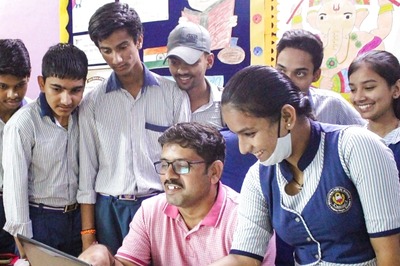




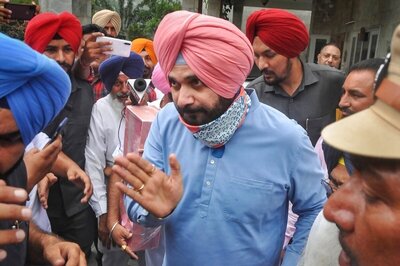
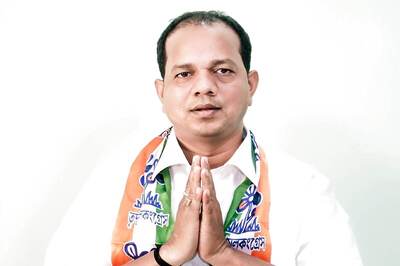

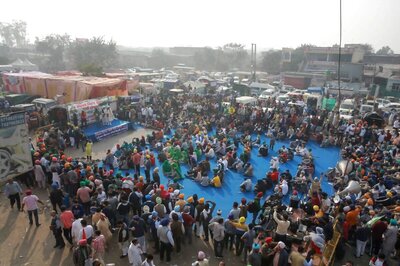

Comments
0 comment